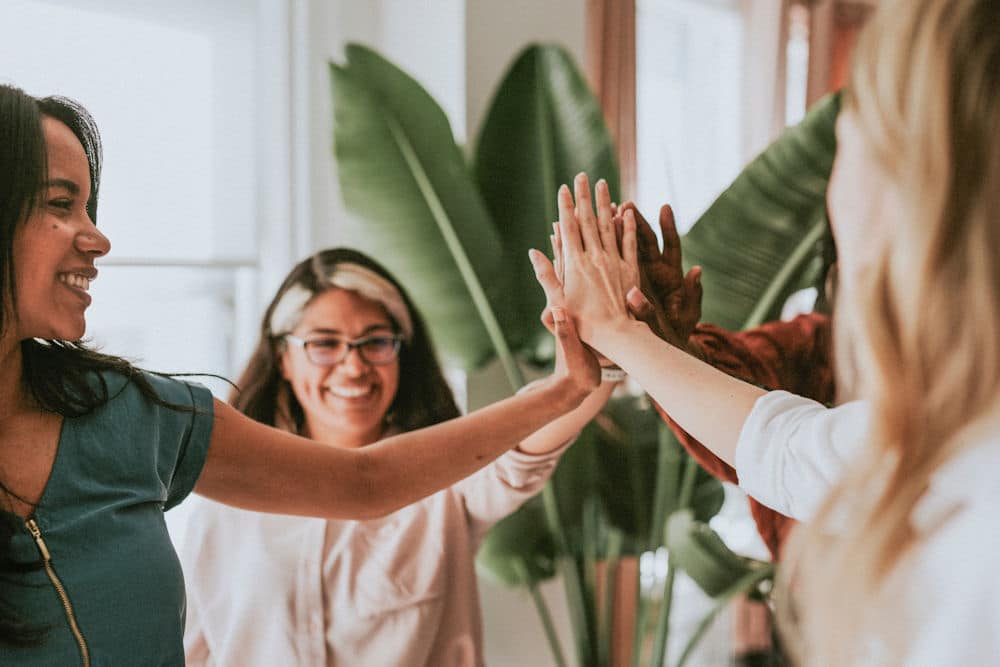Making friends in sobriety can be one of the most impactful steps in supporting long-term recovery. For those in the Kokomo, Indiana, area or nearby Indianapolis, Monroe Street Housing provides a sober living environment that fosters community and accountability—ideal for forming new connections. Here, we dive into the importance of building sober friendships, the challenges that can arise, and actionable tips for cultivating friendships that will support your recovery journey.
Why Building Sober Friendships is Important
Sober friendships are vital for anyone working toward a life free of addiction. These friendships offer mutual understanding, accountability, and support through shared experiences and sober lifestyles. Unlike acquaintances who may not fully understand the struggles of recovery, sober friends share similar journeys and can provide meaningful encouragement.
These friendships help create a sense of belonging and reduce the feelings of isolation that are common in early sobriety. Furthermore, healthy friendships promote stability, reduce stress, and serve as a reminder of the benefits and joy that sobriety brings. Friendships in sobriety are a safe haven, offering strength and camaraderie in times of vulnerability.
Challenges of Making Friends in Sobriety
While the benefits of sober friendships are clear, making new, healthy connections in recovery can be challenging. There are a few common obstacles that individuals in sobriety often face:
Many individuals in recovery find that their previous social circles revolved around drinking or using substances. When you get sober, these friendships may fade or even become strained, which can lead to feelings of loneliness.
Building new friendships can be intimidating, especially when you’re in a vulnerable place in your recovery. The fear of not fitting in or being judged can hold you back from seeking out new relationships.
In the early stages of recovery, it can be difficult to find new sober friends who understand your journey. This can lead to feelings of isolation, which may, in turn, increase the risk of relapse.
Overcoming these challenges is possible but requires intentional effort and a willingness to step outside your comfort zone.
Tips for Meeting Sober Friends in Your Community

Fortunately, there are several ways to start meeting new people who are also committed to sobriety. Here are some effective strategies to consider:
- Start Small: Seek out low-pressure settings to meet people, like community events, sober meet-ups, or local interest groups. Attending activities that align with your interests is a great way to meet like-minded individuals who prioritize healthy lifestyles.
- Look for Shared Interests: Engage in hobbies or skills you enjoy, such as fitness classes, book clubs, or art workshops. Connecting with others through sober activities naturally facilitates friendship and provides a supportive way to spend time without alcohol or drugs.
- Seek Out Sober Events in the Area: Many communities host sober events or gatherings, which can be fantastic opportunities to meet people with similar goals. Whether it’s a sober hiking group or a painting class, these events create a comfortable space to socialize without the pressure of substance use.
Support groups and recovery communities play an invaluable role in helping individuals meet and form friendships with others in recovery. Monroe Street Housing, for example, provides a structured environment where residents can connect with others dedicated to sobriety.
- 12-Step Programs: Programs like Alcoholics Anonymous (AA) or Narcotics Anonymous (NA) offer a wealth of connections with people in recovery. These groups meet regularly and provide a safe space for sharing and supporting each other’s sobriety journeys.
- Non-12-Step Groups: If 12-step programs don’t align with your beliefs, there are alternatives such as SMART Recovery or LifeRing Secular Recovery. These groups offer different approaches to recovery and are valuable for meeting people who may have similar perspectives on sobriety.
- Faith-Based Recovery Groups: For those who find strength in spirituality, faith-based groups provide both recovery support and spiritual encouragement. Local churches or religious organizations often have resources to connect you with groups where you can meet others who value both sobriety and spirituality.
When you’re newly sober, socializing in traditional settings where alcohol or drugs are involved can be intimidating. To combat this, look for sober events and activities designed specifically for those in recovery. Many sober living communities host their own events, or you can find sober gatherings in your local area or online.
Some ideas for sober events include:
- Sober Concerts: Many venues offer “alcohol-free” events, where the focus is on music and socializing rather than drinking.
- Fitness Classes: Yoga, hiking, running clubs, or other fitness activities offer a great way to connect with others while focusing on health and well-being.
- Art and Creativity Workshops: Many sober events focus on creativity, whether it’s painting, pottery, or writing. These events provide a fun way to meet people while developing new hobbies.
In today’s digital world, there are numerous online platforms dedicated to connecting people in recovery. These platforms can be especially helpful if you’re in a more remote area or seeking to connect with individuals outside your immediate community.
- Sober Social Media Groups: Social media platforms have groups specifically for people in recovery. You can find groups for sober people in your area or groups based on shared interests.
- Sobriety Apps: There are apps designed to help individuals connect with others in recovery. These platforms allow you to search for sober friends nearby or even participate in virtual events and discussions.
- Online Forums: Websites such as Reddit or InTheRooms offer forums where you can discuss sobriety-related topics and connect with people from all over the world.
Volunteering is another meaningful way to meet sober friends. Giving back to the community not only helps others but also reinforces your own recovery journey by staying focused on positive, outward goals.
- Find Opportunities That Matter to You: Whether it’s working with animals, helping out at a local shelter, or assisting with environmental efforts, volunteering allows you to work side-by-side with others who share a passion for making a positive impact.
- Attend Volunteer Events: Many volunteer organizations host regular events or team-building days. These events provide a social atmosphere where you can meet new people who, like you, value contribution and connection.
- Support Recovery-Related Causes: Volunteering for organizations that promote recovery or support sober living, such as charity runs or events hosted by Monroe Street Housing, helps you connect with people who understand your journey.
Once you’ve made sober friends, it’s essential to nurture these relationships. Just like any other friendship, sober friendships require effort to maintain. Here are some tips for keeping your connections strong:
- Check-In Regularly: Make it a habit to reach out to your sober friends regularly, whether through phone calls, texts, or in-person meetups.
- Be Honest and Open: Authenticity is key in any friendship. Be open about your struggles and successes in sobriety, and encourage your friends to do the same.
- Support Each Other’s Goals: Help each other stay motivated and focused on recovery goals. Celebrate each other’s milestones and encourage growth in all areas of life.
How to Handle Social Situations with Non-Sober Friends
 Navigating social situations with non-sober friends can be tricky in recovery. It’s important to set boundaries and be prepared for situations where alcohol or drugs might be present. Here are a few tips for handling these situations:
Navigating social situations with non-sober friends can be tricky in recovery. It’s important to set boundaries and be prepared for situations where alcohol or drugs might be present. Here are a few tips for handling these situations:
- Be Honest: Let your non-sober friends know that you’re in recovery and that you don’t drink or use substances. Most people will be supportive once they understand your journey.
- Have an Exit Plan: If you’re in a situation where you feel uncomfortable, it’s okay to leave. Have a plan for how you’ll exit and a support person to call if needed.
- Suggest Alternative Activities: If your non-sober friends are still important to you, suggest sober alternatives like going for coffee, playing games, or watching a movie together.
The Role of Sober Friendships in Long-Term Recovery
Sober friendships are vital for long-term recovery. They provide the foundation for a strong support system that can help you navigate life’s challenges without relying on substances. Having sober friends means you don’t have to face difficult situations alone. These friendships encourage accountability, emotional support, and healthy coping mechanisms, which are essential for maintaining sobriety.
Making sober friends is not just about finding people to spend time with; it’s about building a network of support that will sustain you through the ups and downs of recovery. By joining support groups, attending sober events, leveraging online platforms, and volunteering, you can build meaningful, lasting friendships that will help you stay on track. Making these connections is also a benefit of sober living. In our sober living home in Kokomo, Indiana, you will focus on recovery with like-minded people. Remember, recovery is a journey; having sober friends by your side can make all the difference in your long-term success.















Comments are closed.